Research
With ten dedicated research labs run by top professors who are always on the cusp of exciting discoveries, the Department of Marine Biology boasts incredible research opportunities for both undergraduate and graduate students, as well as post-doctoral researchers.
Dr. Anna Armitage
In this lab, we examine the community-level interactions and processes that structure coastal ecosystems. Our work spans many coastal habitats, including salt marshes, mangroves, tidal mudflats, seagrass beds, and tidal freshwater wetlands. We are particularly interested in changes in trophic interactions following habitat restoration, nutrient enrichment, or other anthropogenic alterations. Our ultimate goal is to incorporate our understanding of coastal ecosystem dynamics and processes into the management of restored and anthropogenically impacted habitats.
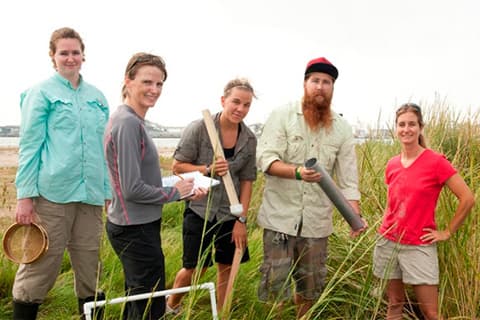
Dr. Guilherme Corte
At the Benthic Ecology Lab at Texas A&M University Galveston, we explore the complex interactions between marine benthic organisms and their environments. We aim to address urgent issues in marine conservation and bridge the gap between science and natural resource management. Using experimental, observational, and synthetic approaches, we tackle fundamental and applied questions in environmental science to better understand, preserve, and manage natural resources and ecosystems. Much of our work involves hands-on fieldwork and data collection, so we are always ready to get our hands dirty!
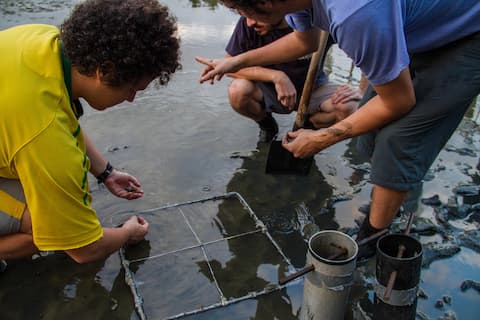
Ecomorphology & Comparative Physiology Lab
Dr. Christopher Marshall
This lab is focused on the integration of morphology, physiology and behavioral performance studies of vertebrates to understand organismal adaptations to the environment. Such studies integrate several research tools including classic animal dissections, histocytochemistry, immunohistochemistry, electron microscopy, kinematics & motion analysis, electromyography, and other electrophysiological techniques.
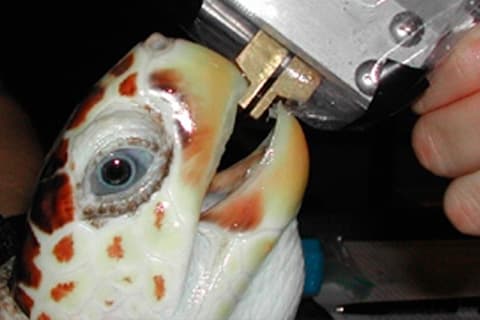
Fisheries Ecology Lab
Dr. Jay Rooker
Our lab’s research centers on the community and population ecology of aquatic organisms, with a special emphasis on marine fishes. We are particularly interested in linkages between habitat selection, individual responses, and survival. The work is both laboratory and field-based, and we typically use both quantitative and experimental approaches to elucidate the importance of biotic and abiotic factors that influence growth, condition, and survival. In addition, we are currently using a variety of natural markers to solve ecological problems.
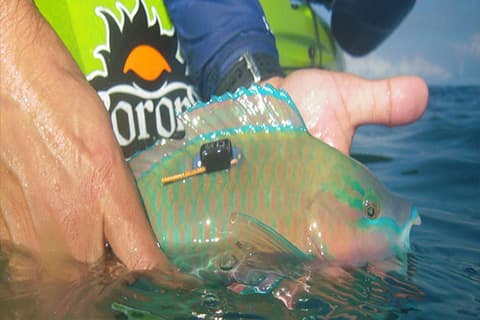
Marine Invertebrate Lab
Dr. Anja Schulze
Our lab is interested in phylogeny, species delimitation and geographic population structuring of marine invertebrates, focusing on marine annelids. Our approaches include morphological, reproductive and developmental studies, genomics and transcriptomics. We use molecular and morphological tools to examine the evolution and diversity of these animals and seek answers to questions like how are different species related to each other? How did one body plan evolve from another? How do the animals reproduce, develop and disperse to distant geographic locations? How are they adapted to their respective habitats?
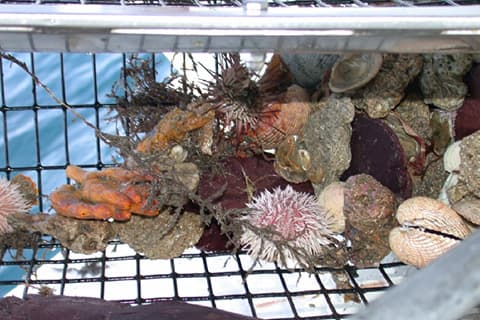
Miglietta Lab
Dr. Maria Pia Miglietta
Research in the Miglietta Lab focuses on Evolution, Genetics, and Ecology of Hydrozoa (Cnidaria). Current projects include: Genomics of the "immortal jellyfish" Turritopsis dohrnii, Jellyfish blooms in the Gulf of Mexico, Invasive species, and Evolution, Taxonomy, and Systematics of Hydrozoa.
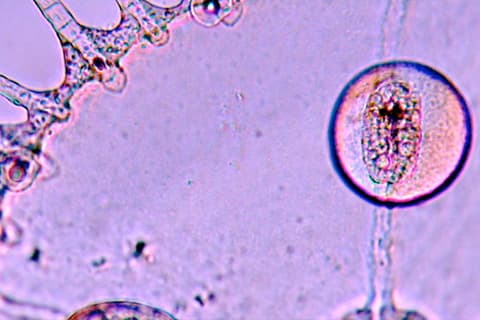
Phytoplankton Dynamics Lab
Dr. Antonietta Quigg
The lab’s research is focused on phytoplankton as model organisms to address questions related to water, climate and energy. We use quantitative and experimental approaches to elucidate the importance of biotic and abiotic factors influencing phytoplankton dynamics (community composition, physiology, ecology) in both field and laboratory-settings. It is collaborative, multidisciplinary and international. Our research paradigm is to continuously generate new ideas and new collaborations and alliances, which is needed to do well in the 21st century. In this way, the research we perform in the lab is capacity building for a new generation.
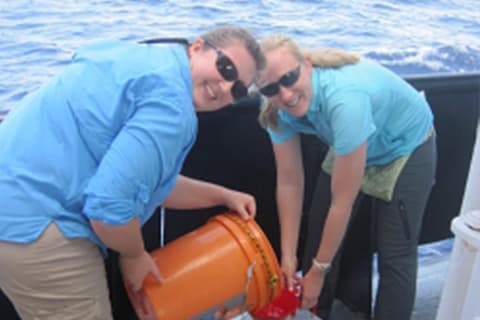
Shark Biology & Fisheries Science Lab
Dr. R.J. David Wells
Research in the Shark Biology and Fisheries Science lab is centered on obtaining a better understanding of the biology and ecology of sharks and bony fishes throughout marine ecosystems. The diversity of marine habitats currently studied includes an offshore to inshore continuum ranging from offshore open ocean systems, continental shelves, nearshore reefs, to estuarine seascapes. Current research themes focus on habitat use, movement dynamics, trophic ecology, life history information, and anthropogenic impacts to fishery resources. The ultimate goal of the applied research is to provide the necessary information to aid in the conservation and sustainability of these valuable resources.
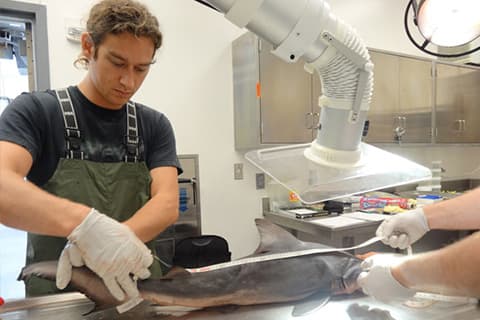
Viral Ecology Lab
Dr. Jessica Labonté
The viral ecology laboratory focuses on the role of viruses in aquatic environments through the characterization of their relationships with their hosts. Through the use of laboratory cultures, molecular biology techniques, and bioinformatics we aim to: describe and interpret spatial and temporal diversity of viruses and microbes, characterize phage–host interactions in environmental systems to define the role of viral lysis in the microbial loop, and understand the mechanisms of evolution of viruses and bacteria in the environment.
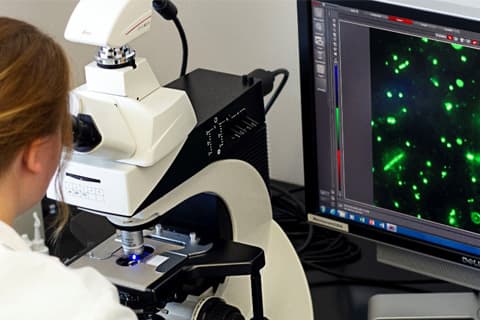
Katie St. Clair
The Sea Life Facility (SLF) at Texas A&M University Galveston Campus provides an experimental research laboratory infrastructure for TAMUG scientists, researchers, and both graduate and undergraduate students to conduct in vivo studies of marine life. Through collaborations with the Department of Marine Biology and volunteer opportunities, the SLF enables undergraduate students to receive hands-on training for mariculture systems and practices. The SLF Outreach Center aims to engage the TAMUG community and general public via educational displays and guided tours about research conducted in the SLF and marine life in the northwestern Gulf of Mexico.
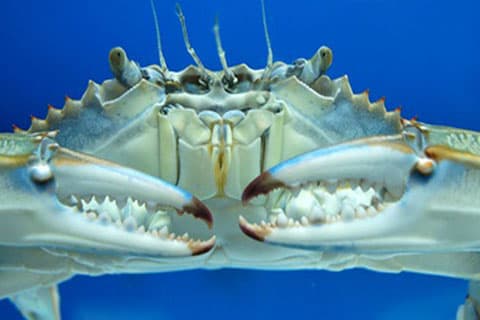
For undergraduates there is also the opportunity of the Undergraduate Research Scholarship program (UGRS), which allows students to pursue a research project under the tutelage of a professor whilst writing a thesis.
For more information about UGRS, please visit the following:
https://www.tamug.edu/undergraduateresearch/
For all other research inquiries, please visit:
https://www.tamug.edu/research/